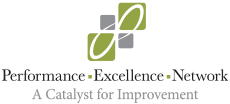
The Science of Happiness: Improving Your Career, Your Organization, Your Life
March 31, 2016
Are you happy? No, I mean really happy – the type of happy that makes you feel like you’re floating through most days. The type of happy that has you whistling while you work (or while you play), so to speak. Most of the time, you can’t wait until tomorrow, but you still savor every moment of today. You love you work; you love your life. That type of real happiness. Not that you don’t have an occasional bad day, but are you really, genuinely, authentically happy?

Happiness Improves Your Health
Happiness is beyond just a “feel good thing”: there is a significant body of research on the impact happiness has on personal health. In an article last summer by Kira Newman of the Greater Good Science Center at the UC-Berkley (Six Ways Happiness Is Good for Your Health):
“Recently, a critical mass of research has provided what might be the most basic and irrefutable argument in favor of happiness: happiness and good health go hand-in-hand. Indeed, scientific studies have been finding that happiness can make our hearts healthier, our immune systems stronger, and our lives longer.”
She goes on to cite numerous studies on the positive impact of happiness:
- it improves your heart and cardiac health: it lowers heart rate, improves blood pressure, causes more regular heartbeats, and ultimately reduces the risk of heart disease by 22%.
- it strengths your immune system: at a cellular level, it appears to ward off illness.
- it combats stress: it reduces the harmful hormone cortisol (that leads to heart disease) by about 23% and reduces another blood-clotting protein caused by stress by 12 times.
- it reduces pain: it literally reduces negative physical symptoms such as muscle strain, dizziness, heartburn, arthritic pain and soreness.
- it may combat disease and disability: some evidence indicates happiness reduces chronic pain, vision problems, age-related frailty, and possibly even certain cancers and stroke.
- it lengthens life: in one famous study, it improved longevity of Catholic nuns by 7-10 years! In another, broader study, it reduced the likelihood of death of those aged 52-79 by 35%.
From this article – and many others like it I’ve seen by Mayo Clinic, the National Institute of Health, Cleveland Clinic, Johns Hopkins, and other credible sources – it seems likely that happiness leads to better health (or at least is correlated with better health). But it also improves professional performance…
Happiness Improves Your Work
Shawn Achor is author of The Happiness Advantage, has been published by the Harvard Business Review and has delivered a TED Talk on the subject of happiness. Achor cites research that happiness can improve professional productivity by 31% and accuracy on tasks by 19%. Achor claims that when people are happy, they tend to solve problems faster and more effectively, they are more collaborative and creative, and they enjoy better response from colleagues and customers alike. In other words, not only are they more effective on the job, but they have better interpersonal relationship skills. It’s probably not a coincidence, then, that people with generally better dispositions seem to achieve more professionally than those who don’t.
From an individual’s perspective, the benefit of happiness is clear: better health, better well-being, better professional outcomes. But from an organization’s perspective, think of the aggregate impact that happier employees have on an enterprise – they are more productive, more effective, treat your customers and co-workers better. They are more engaged and are more successful at creating positive outcomes for the enterprise. That ROI should be obvious.
Happiness Can Be Managed & Improved
We are extremely fortunate to have Dr. Amit Sood as the opening keynote speaker at the 2016 PENworks conference on April 18, speaking on the Science of Happiness. Dr. Sood is a Professor of Medicine at Mayo Clinic and also serves as Chair of the Mayo Mind Body Initiative. He’s been featured recently on the Today Show and NPR as well as in many national publications – we are honored that he’s agreed to kick off our conference in a few weeks!
The basic tenant in Dr. Sood’s work is that, as humans, we all experience pain – physical and emotional. It is when pain becomes unbearable that we experience suffering. Dr. Sood claims that while pain is unavoidable, suffering is optional – that we all can find paths in life to minimize or eliminate suffering, and that the outcome of those choices become greater happiness and more resilience.
Dr. Sood: “Happiness is a habit. Some of us are innately happy. But most others have to choose. We often, however, don’t realize we have that choice. We also don’t know how to exercise that choice. As a result, we push happiness away.”
Sood believes that we can decrease suffering and increase happiness deliberately – by following and practicing some basic principles, we can develop or enhance our own happiness. His research shows that happiness, stress level, risk of depression, and levels of resilience depend on three interacting factors: your genes, your circumstances, and your choices. Your genes (thank you, grandma) and you’re your circumstances (life happens), both uncontrollable, determine about 50% of your happiness. But the other 50% (your choices) are completely controllable, and that’s where you can have significant impact on happiness.

Dr. Sood has developed a process he calls “Immerse” that helps enhance your inner strength “so you can live each day with intentionality, guided by your core values, until your thoughts, words and actions effortlessly become one with these values.” His process uses both daily insights and daily practice to begin to hardwire these concepts of happiness into your normal routine, because – as with acquiring any new skill – practice is key in rewiring the brain, so that new behaviors become habit. His process is based on several core values: intentionality, having a deeper presence, reaching contentment, and being kind.
Intentionality: Dr. Sood claims that most people are driven by instincts and habits. Some might call this “autopilot” – just going through the motions, following a routine and not really thinking much about the implications. Dr. Sood says that happiness and resilience is enhanced when we’re more intentional – when we take charge and become a more active participant in life. Intentional living involves carefully choosing your thoughts, words, and actions. You think more about life’s meaning and you focus on aligning your short-term actions with this long-term meaning. Dr. Sood: “Such a mind is disciplined, virtuous, engaged, and filled with hope and possibilities. It chooses to think thoughts, speak words, and engage in life’s pursuits based on timeless values.” Being conscious, deliberate, thoughtful, and intentional will improve your moments, your days, your years, and ultimately your career and your life.
Deeper Presence: Intentionality is driven by having a deeper presence. Dr. Sood claims that most of our presence is superficial, because our attention is often fragmented and weak. In our conscious moments, he claims, we have two planes – physical and psychological. In other words, thinking and doing. When those two are not aligned, we become distracted and disengaged with life. However, when they are aligned, he claims that you can start seeing patterns in an otherwise random world; you appreciate details you haven’t seen before; you make fewer errors; you can process the abstract and complex. Dr. Sood says this deeper presence allows you to fully engage with people on a more authentic level, and to build long-lasting, meaningful relationships (both personal and professional). This certainly makes you happier, but also more successful.
Contentment: Dr. Sood states that contentment is a deep feeling of fulfillment, created by the continuous practice of gratitude. People generally move through phases: from having a lack of contentment, to having general contentment (with their own accomplishments and possessions), and then eventually to what he calls “contentment with dissatisfaction” (where you no longer accept the status quo of the world, but try to share peace/joy and improve the world). Headsy stuff. But I can certainly see where this leads to greater happiness, fulfillment, and resilience. An inner peace, but also the proverbial “giving back” – a form of servant leadership that resonates with most leaders.
Kindness: And finally, Dr. Sood claims that the single most desirable trait in others – your partner, friend, parent, teacher, neighbor, colleague, or child – is kindness. Kindness is really the manifestation of compassion – it is patience; it is forgiveness; it is love; it is humility; it is servant leadership. Kindness is extremely difficult to consistently maintain, especially during times of adversity, stress, anger, or pain. Of course, those are the times we need kindness the most. Dr. Sood states that kindness enables clarity and self-control. It’s what prevents you from overreacting during an argument (saying or doing things you later regret). Kindness gives you peace of mind, but think of the impact it also has on the recipients.
All four foundational values – intentionality, deeper presence, contentment, and kindness – can be learned, refined, and improved over time. All four require practice. And all four are critical for reducing stress, improving resilience, and increasing happiness. True happiness; authentic and lasting happiness.

So how to do you improve in these areas? Join us April 18 at PENworks 2016, as Dr. Sood shares his methods for increasing happiness – what a way to kick off an energetic, powerful two-day conference!
But if you can’t wait until then to start practicing some methods to improve your happiness, pick one or two of these five researched happiness habits. They were suggested by Shawn Achor in Psychology Today – and I see incredible parallels to Dr. Sood’s work:
- Every day, write down three things for which you are grateful. Research shows this will significantly improve your optimism (or, as Dr. Sood labels it, your contentment).
- Take just two minutes a day to write about a positive experience you had over the past 24 hours. According to Achor, this helps you move from a task-based thinker to a meaning-based thinker. My sense is this will also help you move to more intentionality and a deeper presence, two of Dr. Sood’s core principles.
- Exercise for 10 minutes a day. Not only do you gain more physical fitness from this task, but it also reinforces the notion that behavior matters, and it begins to align the physical and the psychological (another tenant of intentionality, according to Dr. Sood).
- Meditate for just two minutes a day, focusing on your breathing and clearing your head. This reduces cortisol, stress levels, and the fragmentation that often comes from multitasking all day.
- Finally, write one, short email first thing in the morning thanking or praising a member of your team. According to Achor and his research at Harvard, this significantly increases your feeling of social support, a key predictor of happiness. But it also helps you practice contentment and kindness, two of Dr. Sood’s key drivers of happiness and resilience (not to mention positively impacting the recipient of those emails!).
Happiness matters. It improves health, well-being, and professional effectiveness. And it’s good business: happier employees are more effective employees. So spend a few minutes a day understanding, practicing, and improving your own happiness. And then spend a few minutes a day helping others on your team (or in your personal life) do the same.
What comments do you have regarding the importance of happiness? Participate in a discussion on this topic: visit our LinkedIn group to post a comment. And follow me on Twitter @LassiterBrian!
Never stop improving!
Brian S. Lassiter
President, Performance Excellence Network
www.performanceexcellencenetwork.org
http://twitter.com/LassiterBrian
Catalyst for Success Since 1987!

